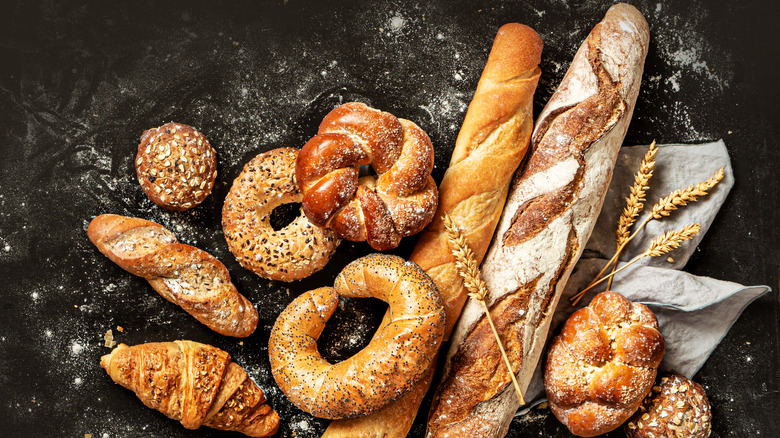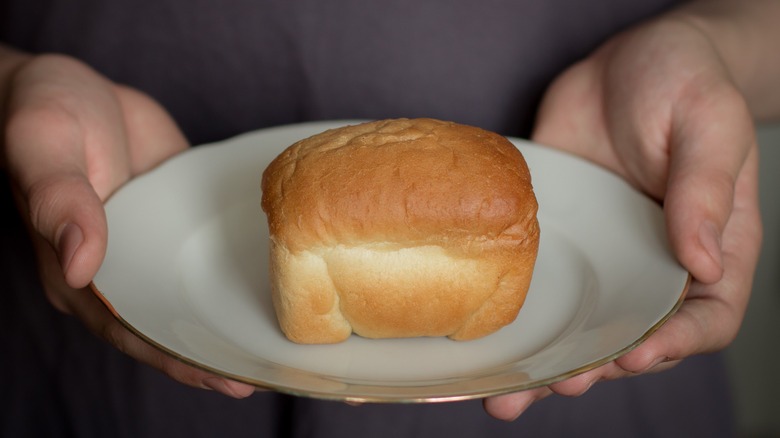New Survey Finds Consumers Prefer Smaller Bakery Options
In our fast-paced world, things are always changing, including what's in our shopping carts. To fuel busy days, consumers want to add a touch of indulgence to their diet with a stop by the bakery — the keyword being a touch. According to a survey recently conducted by Rich Products, there's an emerging market for bite-sized baked goods. Here's what you need to know about bakery options crafted on a smaller scale.
Influenced by inflation costs, many have ditched dining out in favor of eating at home. However, the survey findings show that consumers are still searching for ways to add some of that dine-out pizzazz to mealtimes by introducing an array of specialty baked goods, especially those available in minuscule portions.
Compared with traditionally-sized baked goods, Supermarket Perimeter reports that miniature versions of cakes, cookies, and donuts are becoming widely successful, prompting a 25% spike in sales for individual cake slices and a 19% increase for cake bites. But that's not to say that other items like rolls and breads aren't facing a very similar heightened popularity. That said, why are shoppers gravitating to these shrunken goodies?
Modest portions at a modest price
Eating three square meals a day is increasingly becoming a thing of the past. In fact, The Takeout reports that nearly 70% of people prefer a series of smaller nibbles throughout the day rather than a few large meals. Solidifying our tendency towards snacking, smaller-sized portions actually make a lot of sense.
While it can be a strategic way to appeal to a wider audience of portion-minded consumers, CNN explains that snack-sized goodies are cheaper in comparison to larger packages — though snack-sized options can be a splurge due to their extra manufacturing costs, they're still more affordable than a full-sized product. Likewise, mini-baked goods can also save money by eliminating unnecessary food waste. For instance, The Wall Street Journal shared that some bakers have started selling smaller loaves of bread, baked in mind for households with fewer people and eco-aware consumers.
If that weren't convincing enough, since smaller-sized baked goods don't require the same level of commitment required by traditionally-sized items, Rich Products explains that this can inspire consumers to be more willing to try new products. With mini muffins, one-bite bagels, and tinier packages of dinner rolls cropping up on bakery shelves, you might very well soon be exclaiming, "Honey, they've shrunk the bakery!"

